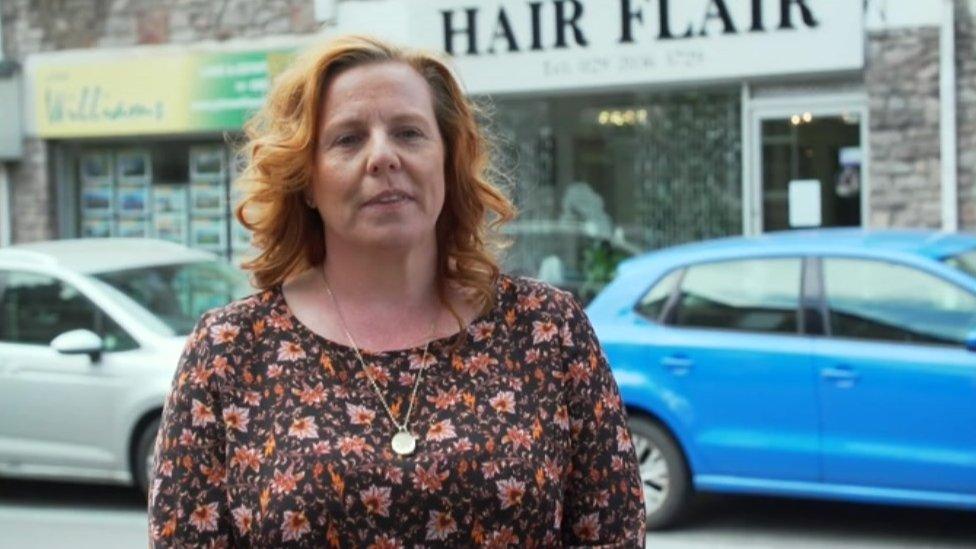Covid in Wales: Pet firms 'falling through loopholes' of support
- Published

Pet boarding businesses look after people's pets when they are away, usually on holiday
Pet boarding businesses in Wales say they have "fallen through the loopholes" for most coronavirus support.
The small businesses that look after people's pets when they go away are not automatically eligible for tourism-sector grants.
Nearly 70 have formed an alliance calling on the Welsh Government to treat them like tourism businesses.
The Welsh Government said some boarding firms could apply for council grants.
Rhian Cowen runs a home-boarding business for dogs in Pembrokeshire. She said her "full diary" of bookings for 2020 were all cancelled last February and she has had no significant bookings since.
"We were the type of business that was told should stay open," she said.
"In some areas that may have been fine because they may have hospitals and may have been a good support for key workers."
She said she has had no income from key workers, although she says she would not have charged them if she had.

Rhian Cowen usually looks after people's pets while they are away and takes them for walks
'Open but empty'
Ms Cowen said until 23 December 2020 she was not eligible for a "single penny" of Welsh Government support because, as a home business, she does not pay business rates.
Her total earnings since February 2020 were £800. She did receive discretionary grants of £1,500 on 23 December and another £2,000 grant in January.
But she said this "barely covers the costs of having to remain open".
Her business license fee to the council last year was "just under £500 and the license fee for 2021 is just over £500".
"Welsh Government also decided we could stay open. Even though we were empty we were open - it was bizarre.
"And we weren't considered a tourism business - we are a tourism business, without us there wouldn't be that support for people to go on holiday with confidence."
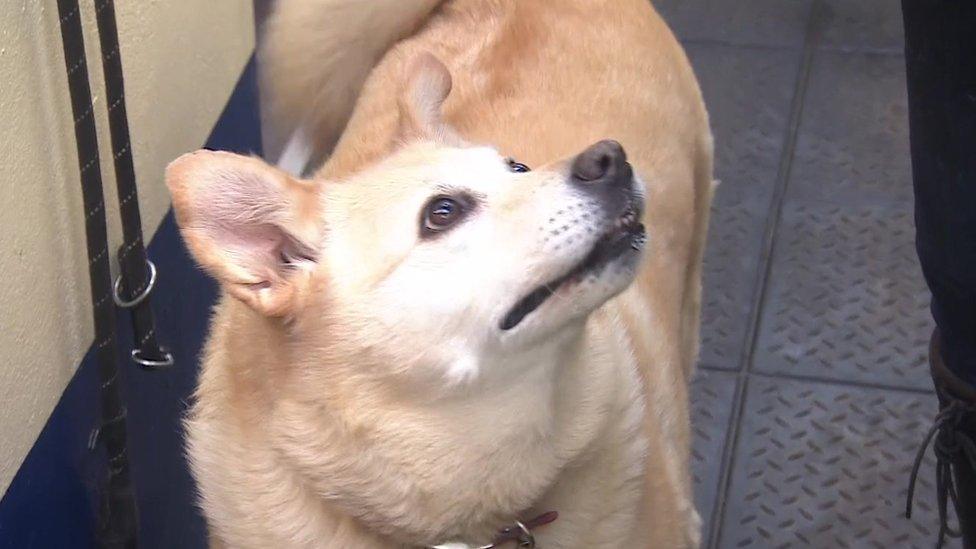
Pet firms say they are struggling to access support
'We can't diversify'
Kate Schofield, who runs Broadlane Kennels in Pembrokeshire, said not being considered a tourism business has also had an impact on her ability to get support.
"With the firebreak grants we discovered that we weren't in the right category. We did have the discretionary element of it but certainly not the full grant. Subsequently we applied for the Restricted Business grant," she said.
"We've been declined it because again, we don't fit the right category.
"From what we can understand we don't fit the tourism/hospitality support side of the grant. When you consider the bulk of our customers are going on holiday which effectively makes them tourists then we're a bit puzzled as to how the criteria is worked out."
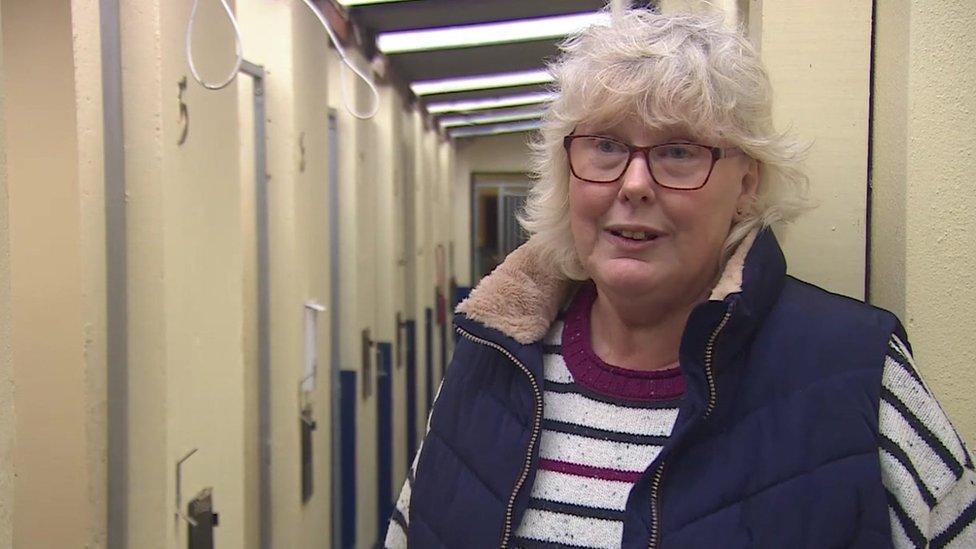
Kate Schofield says she would like to see a "level playing field" with similar businesses in other council areas
Mandy Hawkins runs a cattery in Cardiff and said she has "fallen through the loopholes for nearly all the support".
Her small business does not pay business rates, so was not eligible for business rates-based grants and she doesn't employ any PAYE employees so missed out on the Economic Resilience Fund.
"Ninety-eight per cent of my customers are people going on holiday but we don't get classed in with tourism, so any of the grants available for the tourism or hospitality industry we can't get.
"With cats we can't really diversify - no-one has any other reason for putting a cat elsewhere other than when they are away."
Ryan Lee, who runs Berry Hill Kennels in Haverfordwest, was able to claim the initial £10,000 business rates grant and £3,000 during the firebreak lockdown but has been refused other grants since.
He has set up a group of affected businesses called the Pet Boarders Alliance - 68 of whom backed a petition to the Welsh Government asking for more support for the pet-boarding industry.
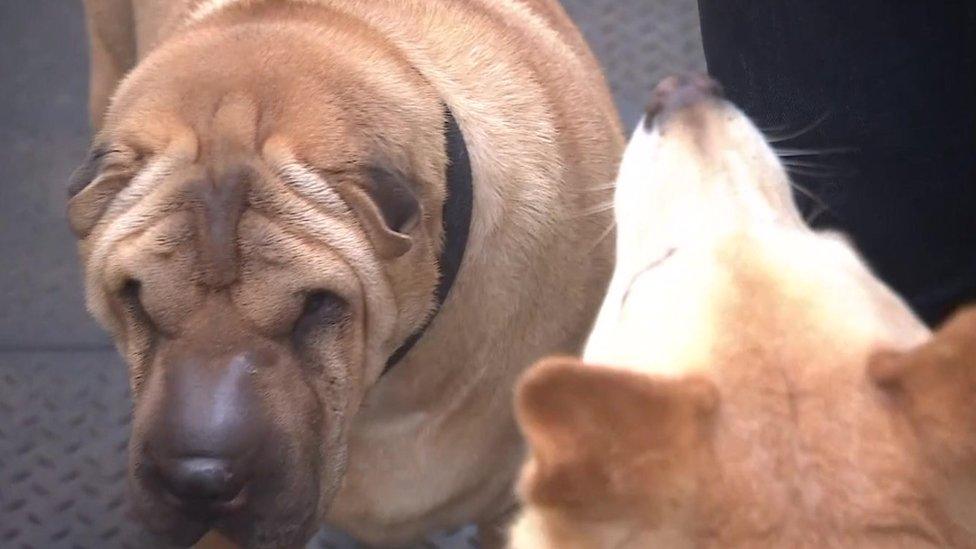
Kate Schofield just had her own dogs to look after in February half-term - when the kennels would usually be full
In a letter to a Senedd committee on 13 January, the Welsh Economy Minister Ken Skates said kennels and catteries were not eligible for the Restrictions Business Fund non-domestic rates grants, external for non-essential retail, hospitality, leisure and tourism businesses that were directly impacted by national restrictions.
But Mr Skates said it "will be for local authorities" to determine if business properties are similar in nature to those eligible or not.
Mr Lee said some councils have refused the grant using Mr Skates' comments "as a reason".
"My own council, Pembrokeshire, had refused originally on the grounds that we were not forced to close," he added.
A Welsh Government spokesman said: "A pet boarding business based at the home of the business owner would be able to apply for a local authority discretionary grant should it be their main source of income and they could also be eligible for help from the UK government's Self-Employment Income Support Scheme."
They added: "We have worked with local authorities to produce guidance about allocating non-domestic rates (NDR) grants. All local authorities have had the same guidance, which sets out the specific criteria that businesses need to meet to qualify for a grant and the evidence required to establish whether a business is eligible.
"Pet boarding businesses are not automatically eligible, but if they meet certain criteria including demonstrating a drop in turnover of greater than 40%, and are NDR-registered then they could apply for support.
"Local authorities make the decision about whether to award a grant to an individual business based on the evidence provided."
Pembrokeshire County Council said they were aware pet boarding businesses had missed out on the current round of Welsh Government non-domestic rates grant funding, but were aware different local authorities may have taken different approaches to who was eligible so had sought clarity from the Welsh Government.
A spokeswoman said: "Welsh Government has now advised that there's probably a reasonable argument to be made that if people aren't able to go on holiday, they're less likely to send their dogs to the kennel.
"They have advised that the key test would thus be 40% reduced turnover if the business has been impacted by its link with the tourism sector.
"Grants can therefore be paid where this turnover drop applies, and we are currently reviewing such applications accordingly."

WINTER LOCKDOWN GETTING YOU DOWN? : 6 Top tips for looking after your mental health
TRY SOME NEW RELAXATION TECHNIQUES: What is mindfulness and how can you achieve it?

- Published3 December 2020

- Published18 December 2020
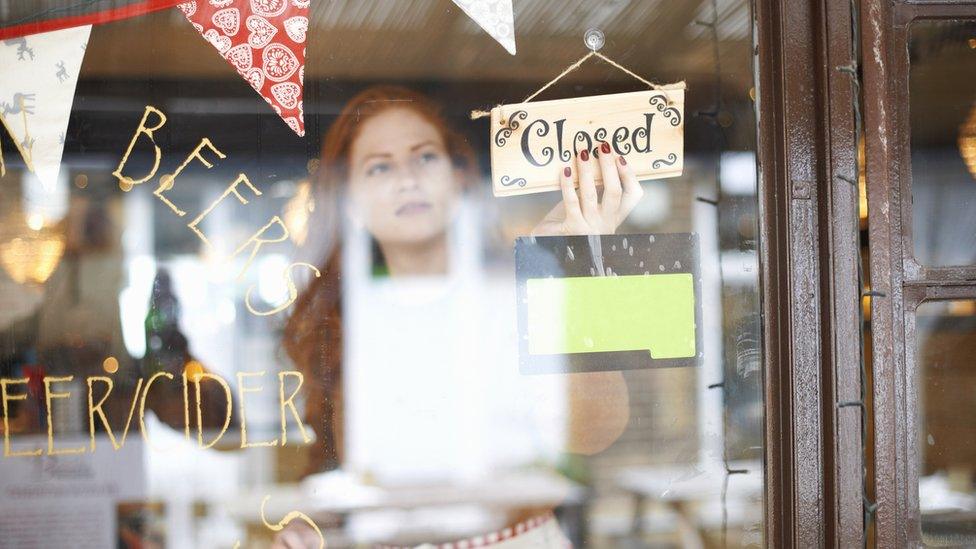
- Published15 November 2020

- Published9 November 2020
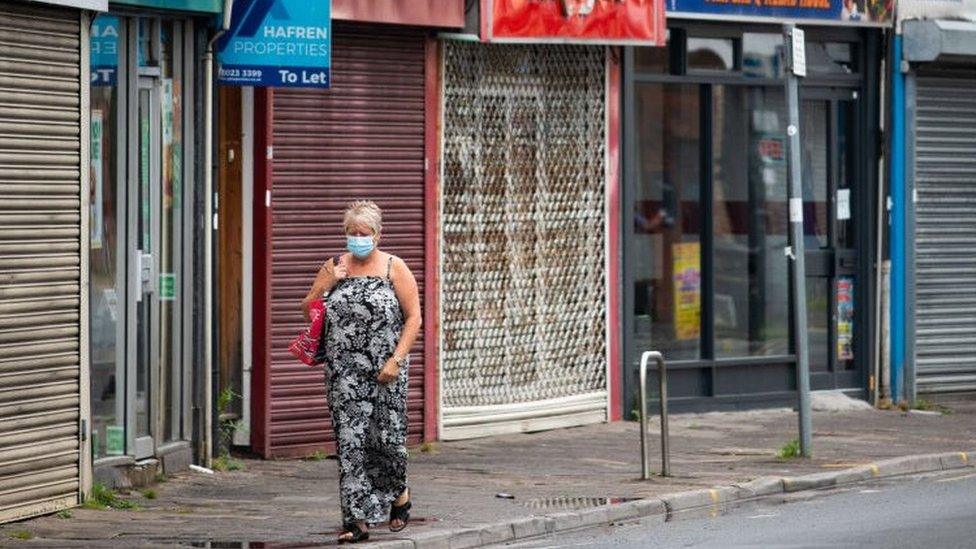
- Published14 May 2020
